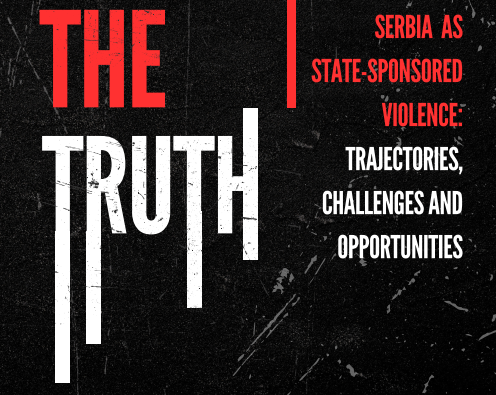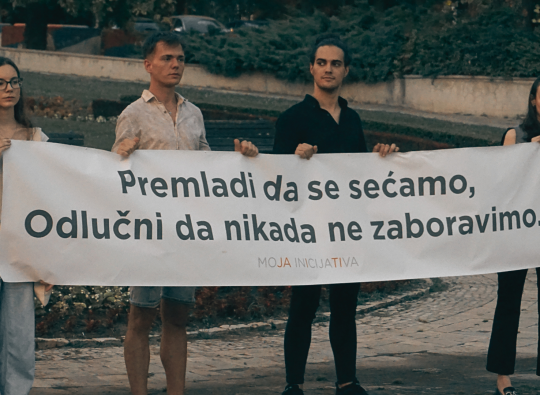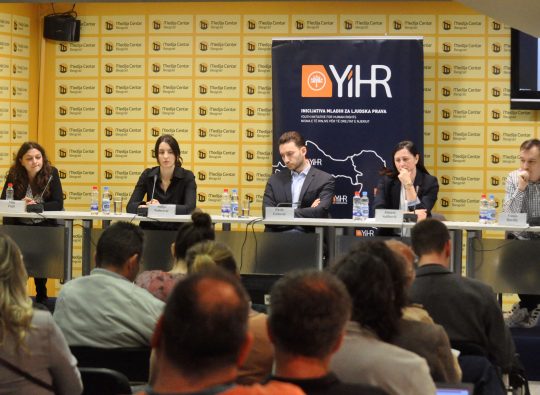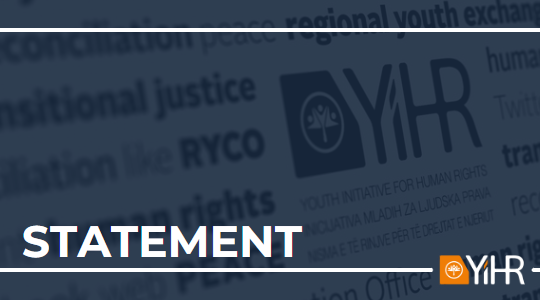We demand that the President of the Republic, the Prime Minister, the Chairperson of the National Assembly, and the members of the governing coalition – who, in light of the visit of French President Macron extensively talk about Serbian EU perspective – condemn Vojislav Šešelj’s threats and to finally, both physically and metaphorically, take him away from the National Assembly of Serbia by applying the Law on the Election of Members of Parliament. Further, we urgently demand that the public prosecutor’s office question Vojislav Šešelj and investigate threats he had made.
Šešelj has repeated his previous proposal to amend the Criminal Law so that anyone who says that genocide was committed in Srebrenica should be sentenced to prison; he has raised the bar of his monstrous intimidating technique by stating that if he comes to power, he will know how to deal with the opponents – he would run his political opponents over with his jeep for which he has already purchased tank treads.
In this act of violence, Vojislav Šešelj has not spared Staša Zajović or the deceased Biljana Kovačević Vučo, either. Reducing women’s words and deeds to their physical appearance and grossly insulting them based on such physical appearance is a part of sexist and misogynous policy pursued by Vojislav Šešelj.
We have been calling on and reminding that any delay or refusal to remove Šešelj’s parliamentary immunity will show that the executive power and its members of parliament are standing in defence of Šešelj’s politics from the 1990s which led to mass murders, innumerous victims and forcefully displaced persons, and ultimately to genocide.
Threats made against Snežana Čongradin are a direct result of President of Serbia’s denial and silence about the responsibility for genocide in Srebrenica and the absence of elementary human empathy for the families of victims of genocide. At this particular moment, instead of condemning Šešelj’s threats, as well as a violent attempt to interrupt theatre play ‘Srebrenica: When We Who Were Killed Rise Up’, Prime Minister Ana Brnabić has once again used the opportunity to deny Srebrenica genocide by manipulating with the number of victims of Serbian nationality in the Podrinje region, who, instead of playing with numbers, also deserve recognition and respect from the state of Serbia.
On this day, when 24 years ago 1200 civilians were killed on the military farm Branjevo and 500 civilians were killed in the Pilica Cultural Centre within the Srebrenica genocide, the topic must be the politics Serbia is choosing – the defense of the Greater Serbia or Europe which values peace and freedom. Tests for politicians do not lack here: today, they can condemn threats against media which report on the expressions of solidarity with and empathy for the victims of genocide in Srebrenica.












